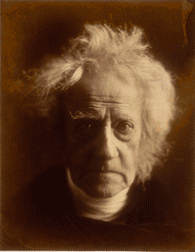
Sir John Herschel
Julia Margaret Cameron
A PRELIMINARY DISCOURSE
ON
THE STUDY
OF
NATURAL PHILOSOPHY
BY
JOHN FREDERICK WILLIAM HERSCHEL, Esq. A.M.
LATE FELLOW OF ST. JOHN'S COLLEGE, CAMBRIDGE, &C.
PHILADELPHIA: CAREY AND LEA
1831.
279 pages.
This electronic edition prepared by Dr.
David C. Bossard
from original documents in the library holdings of Dartmouth College.
April, 2006.
Copyright © 2006 by David C. Bossard.
|
Before
all other things, man is distinguished by his pursuit and investigation
of TRUTH. And hence, when free from needful business and cares, we
delight to see, to hear, and to communicate, and consider a knowledge
of many admirable and abstruse things necessary to the good conduct and
bappinees of our lives: whence it is clear that whatsoever is TRUE,
simple, and direct, the same is most congenial to our nature as men.
Closely allied with this earnest longing to see and know the truth, is
a kind of dignified and princely sentiment which forbids a mind,
naturally well constituted, to submit its faculties to any but those
who announce it in precept or in doctrine, or to yield obedience to any
orders but such as are at once just, lawful, and founded on utility.
From this source spring greatness of mind and contempt of worldly
advantages and troubles.
Cicero,
De Officiis, Lib. 1.
§13.
|



